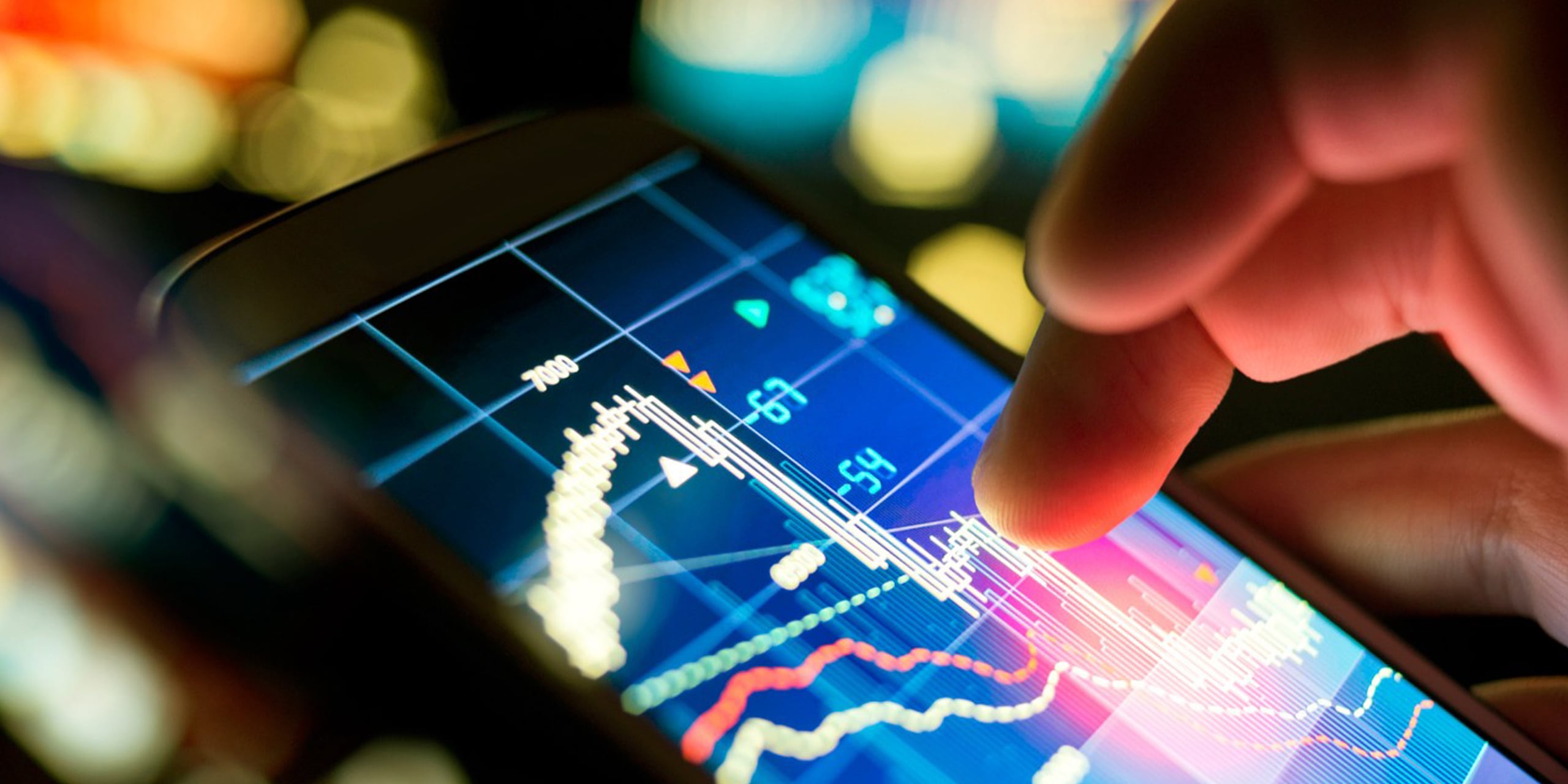Connecting the Dots: Thinking Big with Big Data
Connecting the Dots: Thinking Big with Big Data
From self-driving cars to healthcare, big data is at the heart of all the megatrends happening today

Big data is changing the way we interact with technology
It’s Monday and the lethargy from the heady weekend mix of hawker food and alcohol is kicking in. On your way to work, you browse your favourite food delivery app to figure out what to order for breakfast. The app recommends a salad, followed by a superfood-charged burrito bowl — like a concerned mother advising you to eat healthier, to make up for the excesses of the weekend.
This doesn’t happen by accident. The truth is, based on all the data collected from its customers, the company knows that, more than any other day of the week, customers tend to eat healthier on Mondays. This information allows the app to provide you with relevant, more targeted recommendations — and hopefully land a transaction along the way.
A New Paradigm
Amassing and analysing data isn’t science fiction. So-called ‘big data’ is an extremely large set of data that can be collected and analysed — and engaging it is quickly becoming key to the way that companies do business.
This is made possible because human beings are creating data — and more precisely, digital data — constantly. From swiping our smartphones to using our GPS-enabled devices, we leave multiple digital footprints in the virtual world. And these ‘digital trails’ can then be collected, quantified and analysed to understand human behaviour better.
Before you write big data off as an Orwellian nightmare, don’t. When we harness the potential of big data in a responsible manner, it becomes a powerful tool for society, effectively helping us ‘know’ things with much more certainty.
Dr Atul Butte, director for the Institute for Computational Health Sciences at the University of California San Francisco, summed it up best when he told Stanford Medicine magazine, “Hiding within those mounds of data is knowledge that could change the life of a patient — or change the world.”

Big data is already having a huge impact on our lives — even if you don’t know about it
Our Everyday Life
Think about it: data fuels the simplest things in your life. Take your weekly grocery shopping for example. Today, Singapore online groceries start-up RedMart is able to use customer purchase history, items already in the checkout cart and those of fellow customers, to analyse and form customised recommendations. So if a new mother adds baby products to her shopping cart, the system will be able to automatically recommend related baby items — pretty useful, right?
Soon, big data can even help you find your dream job in a company you probably never knew existed. Another Singapore-based start-up, TalentDash, helps companies select ideal candidates based on the preferences and search parameters they upload onto the platform.
“I have been in the HR and staffing technology space for many years, and it became increasingly apparent that recruiters and employers utilised outdated sourcing methods, or spent too much time on manual tasks that could have been automated or outsourced,” TalentDash founder James Galvin told human resources website, HR in Asia. “Data drives better decision-making, and that’s what we are doing with TalentDash.”
Travel and Transport
Big data goes beyond individual conveniences too. Notable names in the sharing economy, such as Airbnb and Grab, would not be viable enterprises on such a grand scale without using all the data information they get. This allows ride-sharing apps to match drivers to riders — giving them the estimated time of arrival for their vehicle.
The question is, are we close to a world of driverless cars? Tesla Motors recently reported that a million miles (that’s 1.6 million kilometres) of data are added every 10 hours, all because Tesla’s existing customers are themselves test drivers, and therefore data generators. This allows an autonomous car to ‘learn’ from all the data collected, drive through the same roads and potentially improve the ride.
Thanks to the tremendous amount of data collected — that’s 780 million miles (1.225 billlion kilometres) worth and counting — the company is confident that autonomous cars will eventually be far safer than cars driven by human beings. As Tesla founder and CEO, Elon Musk, confidently muses, “In fact, in the distant future, I think people may outlaw driving cars, because it’s too dangerous.”
Watch: Future Of: How big is Changing the World
From Ideas to Commercialisation
Even inventors are jumping on the big data bandwagon. PatSnap is, in its essence, a data search engine with patent information from millions of databases from all over the world (118 million to be exact) along with licensing and litigation data, economic data, patent valuation and more. This allows anyone with an inventive streak to search through the database and learn what patents already exist, where the opportunities lie and how much their patents are valued.
So for example, if an inventor was looking to patent his creation, PatSnap’s platform could assist him in narrowing down specific products patents in the same industry are being filed. This will help him find gaps in the market, and identify opportunities to take the idea to the next level.
A Healthy Outlook
Today, we already see glimpses of how data can help us lead healthier, happier lifestyles. Smart watches and activity trackers, for example, are now widely available on the market. More than just ways to track the user’s movements throughout the day, such technology allow one to compare activity levels with friends or family, encouraging the user to take concrete steps towards a more active lifestyle.
And this is just the beginning. In future, the health data you collect could be shared with your doctor, who could then use it as part of a diagnostic toolbox at your next check-up. As business magazine Forbes pointed out in a 2015 story, access to huge, ever-growing databases of health information “will allow problems to be spotted before they occur, and remedies — either medicinal or educational — to be prepared in advance”.

With a projected growth to US$92.2 billion by 2026, the global big data market is set to change the way we live — and work — in dramatic ways
A Deeper Dive
So yes, big data is poised to change the world in a big way. According to Wikibon, a business technology research project, the global big data market will grow from US$18.3 billion in 2014 to US$92.2 billion by 2026. Beyond the numbers, however, big data ultimately helps us to know ourselves better. With access to our daily processes, it allows us to test-and-learn in a constant, self-correcting virtuous loop.
Make no mistake: big data is far from perfect. As the polls from the 2016 United States Presidential Election clearly showed, having all the data in the world may still lead to erroneous conclusions. But here’s a reassuring thought: every data misinterpretation we make presents new knowledge and new statistics to consider. Getting it wrong today simply means that we WILL get better at analysing similar future situations. Now that’s a data point worth clinging on to.
Disclaimer: Temasek is invested in Airbnb, while Vertex Ventures is invested in PatSnap and Grab. All other products and brands mentioned are unaffiliated with Temasek.


